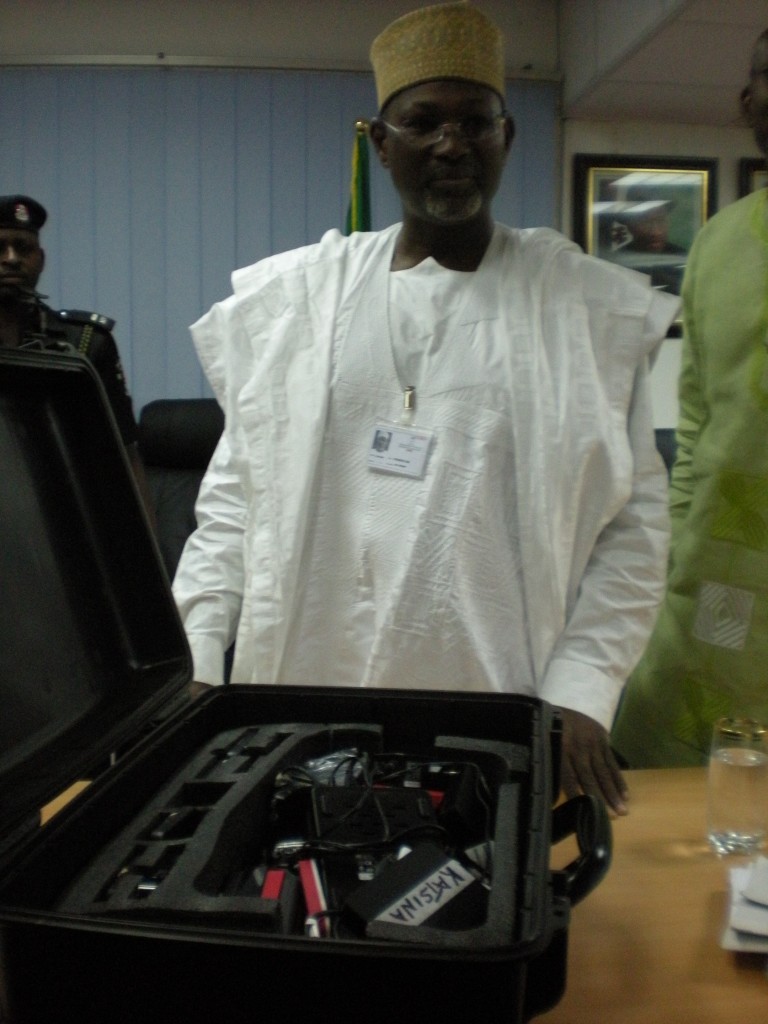Last week Nigeria’s Independent National Electoral Commission called the press corps to announce the figures for the voter registry, which must be must be formally certified no less than 30 days before the election in order to comply with the electoral law.
After a busy day of meetings with visiting international delegations, an inter-agency meeting on security, and a visit to the National Assembly, Electoral Commissioner Attahiru Jega gave one of the most important press conferences of the electoral cycle to a largely empty room. By the time he arrived, 90 minutes late, virtually the entire press corps had left in protest. This is unfortunate because the final, official figure of 73,528,040 voters raises a number of important questions which needed to be pre-empted with clear explanations. INEC missed an opportunity to reassure voters and observers about the credibility and transparency of the unfolding electoral process.
Most significantly, the rolls reflect an increase of approximately 5.7 million voters. The list is already a matter of debate among non-governmental experts and some in the US Government, the latter doubting how a biometric system could have been implemented so quickly. Electoral administration expert Robert Pastor from the Center for Democracy and Elections Management has pointed to comparative examples where biometrics were successfully implemented in smaller countries with much better electricity, yet it took considerably longer to reach operational status. Nigerian journalists who covered the registration process told me that the laptops effectively addressed the power problems by providing backup batteries.
Jega attributes the increase to the process by which the voter rolls where increased: each day INEC staff in the states reported registration numbers from their jurisdictions. But most of the provisional figures, reported last month, were incomplete because they had not been “consolidated” properly. Once the math adding up the provisional figures had been re-checked, the voter rolls increased due to what Jega described as “massive under-reporting” during the provisional count. Even so, the biometric system caught 870,612 duplicate voters, with Niger State having the largest number and Abuja, FCT with the smallest.
At the same time, Niger also showed the largest increase in registration, where Governor Babangida Aliyu from the ruling People’s Democratic Party (PDP) faces some electoral challenges. In 2007 he won with 443,764 votes and seventeen out of the twenty five local government areas in a three-way race with ANPP candidate, Barrister David Umar, who came in second with 210,359 votes and Alhaji Muhammad Isah Ladan of the AC who pulled 136,590 votes.
In what amounts to a grand experiment in a country with broad skepticism about the electoral process, the INEC press conference did not unveil a printed copy of the voter lists due to the time it would take to produce a hardcopy with 73 million names.
As an alternative, Jega ceremoniously opened up a briefcase (pictured here) with hard drives labeled for eachstate. The data include gender and other information that will be valuable for analyzing electoral participation. However it is not too difficult to imagine parties in the states claiming there are discrepancies which serve their opponents’ interests; absent a central list for all to see which can decisively (and transparently) resolve such questions, the voter list will almost certainly generate unfortunate disputes and cynicism about the electoral process. Sources say the lists are in PDF, making them difficult to manipulate. But there was an opportunity missed here to reassure the opposition.
Then on Tuesday, the political parties publicly signed a code of conduct – and the ruling PDP withheld its signature. Coming only days after a bomb blast rocked Suleja, just over the city line from Abuja, this is a matter of great concern. At least one SSS insider blames internal PDP rivalries for the blast though it is still under investigation.

 Follow
Follow
 email
email
A quick post while I mull over the details of the report…what will it take to allow us in the diaspora to vote? I think a lot would change otherwise.
Some very interesting news, Professor LeVan. I look forward to reading upcoming posts on the election.